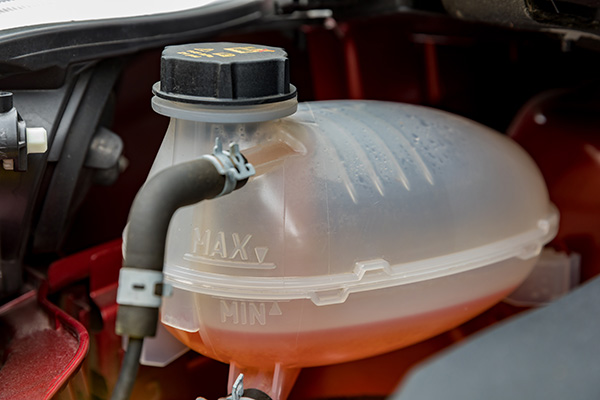
It’s a warning light that many drivers ignore for far too long. The low coolant indicator may not seem urgent compared to more alarming symbols, such as the check engine light, but it can lead to serious problems if left unaddressed. Coolant, also known as antifreeze, is essential for regulating your engine’s temperature. Without enough of it, the engine is at risk of overheating, and the consequences can be expensive.
Ignoring the low coolant light is like running a marathon without water. Your engine needs constant cooling to perform under stress, and when the system is short on fluid, it can only go so long before something fails.
What Coolant Does for Your Engine
Coolant circulates through the engine and radiator to absorb heat, keeping temperatures within a safe operating range. It also protects the system from freezing in cold temperatures and helps prevent rust and corrosion inside the engine.
When your coolant level drops too low, the system can’t transfer heat effectively. This results in increased engine temperatures, particularly during extended drives or in congested traffic. Once the temperature exceeds safe limits, your engine becomes vulnerable to damage, including warped cylinder heads or even complete engine failure.
Why Coolant Levels Drop
Coolant levels don’t typically drop without a reason. In many cases, a low coolant light signals a leak somewhere in the cooling system. These leaks might be easy to spot—such as a puddle under the vehicle—or more subtle, like internal leaks into the engine.
Hoses, gaskets, and the radiator itself can degrade over time. The water pump, which helps circulate coolant, may also develop a leak. In some cases, the coolant reservoir cap may be loose or defective, causing the coolant to evaporate slowly. Regardless of the source, continued loss of coolant without inspection only exacerbates the problem.
The Risk of Overheating
Running your engine with low coolant is one of the fastest ways to trigger overheating. Even a few minutes of excessive heat can damage sensitive engine components, including the head gasket, pistons, and cylinders. Overheating often leads to a breakdown on the side of the road, but it can also cause hidden internal damage that accumulates over time.
Once the head gasket is compromised, coolant can leak into the combustion chambers or oil system. This not only leads to further overheating but can also contaminate your engine oil, reducing its ability to protect engine parts. Head gasket repairs are among the more expensive engine repairs and often require extensive labor.
Ignoring the Warning Light Can Cost You More
Many drivers assume that topping off coolant once the warning light appears is enough to fix the issue. But unless the root cause of the coolant loss is addressed, the problem will continue. Simply refilling the reservoir may only provide a temporary solution and mask a larger issue.
Some vehicles have sensitive coolant sensors, and repeated illumination of the warning light is an early signal that something in the system isn’t holding pressure or functioning correctly. Letting it go too long may force you to deal with a full system failure or engine replacement.
When to Act on the Low Coolant Light
As soon as you see the low coolant light, check the coolant reservoir level once the engine is cool. If it's below the minimum line, add the correct coolant recommended for your vehicle. Avoid opening the radiator cap when the engine is hot, as pressurized steam can cause burns.
Even if topping off resolves the light temporarily, you should still schedule an inspection. The system should be checked for leaks, sensor faults, or failing components like the water pump or thermostat. A pressure test can often pinpoint even small leaks that aren't visible during a basic visual inspection.
Stay Cool With Mancinelli's Auto Repair Center in Denver, CO
Colorado’s fluctuating temperatures make it even more important to maintain your cooling system. High-altitude driving and stop-and-go city traffic both put a strain on your engine, and your cooling system has to work harder than usual.
If your low coolant light has come on—bring your vehicle to Mancinelli's Auto Repair Center in Denver, CO. Our experts will inspect your cooling system, identify any leaks or faults, and make sure your engine stays protected against heat and stress. Don’t wait until you’re stuck with an overheated engine—get it checked today.